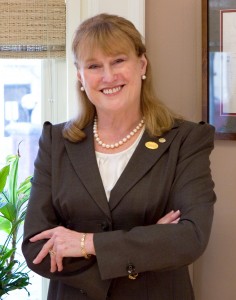News
October 21, 2015Sage President Susan C. Scrimshaw Receives Adam Yarmolinsky Medal for her Contributions to the National Academy of Medicine
 President of The Sage Colleges Susan C. Scrimshaw has been awarded the Adam Yarmolinsky Medal for her service to the National Academy of Medicine, formerly known as the Institute of Medicine (IOM). She was honored last night, October 18, 2015 during the National Academy of Medicine’s 45th Anniversary Gala in Washington, D.C.
President of The Sage Colleges Susan C. Scrimshaw has been awarded the Adam Yarmolinsky Medal for her service to the National Academy of Medicine, formerly known as the Institute of Medicine (IOM). She was honored last night, October 18, 2015 during the National Academy of Medicine’s 45th Anniversary Gala in Washington, D.C.
The Adam Yarmolinsky Medal is awarded to a member of the National Academy of Medicine from a discipline outside of the health and medical sciences. It recognizes distinguished service by a member who, over a significant period of time, has contributed in multiple ways to the NAM mission.
“It has been a privilege to serve with the Institute of Medicine and now the National Academy for Medicine for over thirty-eight years,” said Dr. Scrimshaw. “Being awarded the Adam Yarmolinsky Medal is truly an honor. Medical Anthropology and working to address health issues on a domestic and global level has been my passion. Nothing is more rewarding than meeting those challenges and making a difference in the lives of others. There are so many remarkable things that we have accomplished together over the years as members of the Academy and there is still more to do. I look forward to continuing this wonderful journey of service.”
Dr. Scrimshaw has served as President of the Sage Colleges since 2008. In addition to her numerous roles in the higher education community, Dr. Scrimshaw is a medical anthropologist whose work has focused on health disparities and health equity, minority health, health literacy, social determinants of health and has included areas ranging from reproductive health to global health to HIV/AIDS, health literacy and violence prevention. She has 38 years of service with the IOM. In 1977, at the age of 31, she was a panelist for the report on “Population, Health and Nutrition,” Chapter 3 in U.S. Science and Technology for Development: A Contribution to the 1979 U.N. Conference. Dr. Scrimshaw has served on a total of 25 IOM and National Academy of Sciences (NAS) committees, boards and workshops.
From 2006-2011 she served as an elected member of the IOM Council, and co-organized and chaired the 2008 IOM annual meeting, “Is Biology Destiny?” which addressed the interplay between the biological and social determinants of health.
She was an IOM representative on the Committee on Science, Engineering, and Public Policy (COSEPUP) from 2007-2012, where she was instrumental in helping to organize and then served on the NAS Committee which produced a report on Increasing National Resilience to Hazards and Disasters.
Dr. Scrimshaw chaired the committee that produced the 2002 report “Speaking of Health” on health communications strategies for diverse populations. She also chaired the workshop (1987) which led to the IOM study and report “In Her Lifetime” on women’s health in Africa. In 2002 she chaired a workshop that produced the report “Safety is Seguridad” on Latino worker safety. She chaired the IOM Interest Group 8 on Health of Populations/Health Disparities from 2006-2008. She was the workshop moderator for “Population based strategies for improving health: Charting a field” in 2000 which led to the establishment by the Robert Wood Johnson Foundation of the Health and Society Scholars program, which allowed the field of population health to emerge.
Some of the IOM committees she has served on include “The Unequal Burden of Cancer” (1999), “Health Literacy: A Prescription to End Confusion” (2004) a 1998 panel on National Institutes of Health Research Priority Setting which included Adam Yarmolinsky as a panel member. Her service on the Board on Global Health (originally “International Health”) from 1988-1997 culminated in a white paper she proposed to the Board on global health as America’s vital interest which helped to re-ignite funding support for the Board, which she again joined for 2000-2003.
Her service has been much sought after because of her anthropological expertise and cultural competency (she is bi-lingual in English and Spanish and speaks French and Portuguese), her experience in both domestic and global health, her deep background in Public Health (after 20 years at UCLA, she served 12 years as Dean of Public Health at UIC and chaired the Association of Schools of Public Health) and her ability to run meetings and bring people into the conversation. In January of this year, she began a three-year term as Co-Chair of the IOM/NAM’s Global Forum on Innovation in Health Professional Education. When she was elected in 1993, she and her father became the first father/daughter IOM members.
In December of 2014, Dr. Scrimshaw was awarded the Society for Medical Anthropology’s Career Achievement Award for helping to advance the field of medical anthropology through her career-long contributions to theory and method, and for her success in communicating the relevance of medical anthropology to broader publics.
Dr. Scrimshaw was born in Rochester, NY and raised in Guatemala until age 16, when she and her family returned to the Boston area, where her father chaired the Department of Nutrition and Food Science at the Massachusetts Institute of Technology (MIT).
























